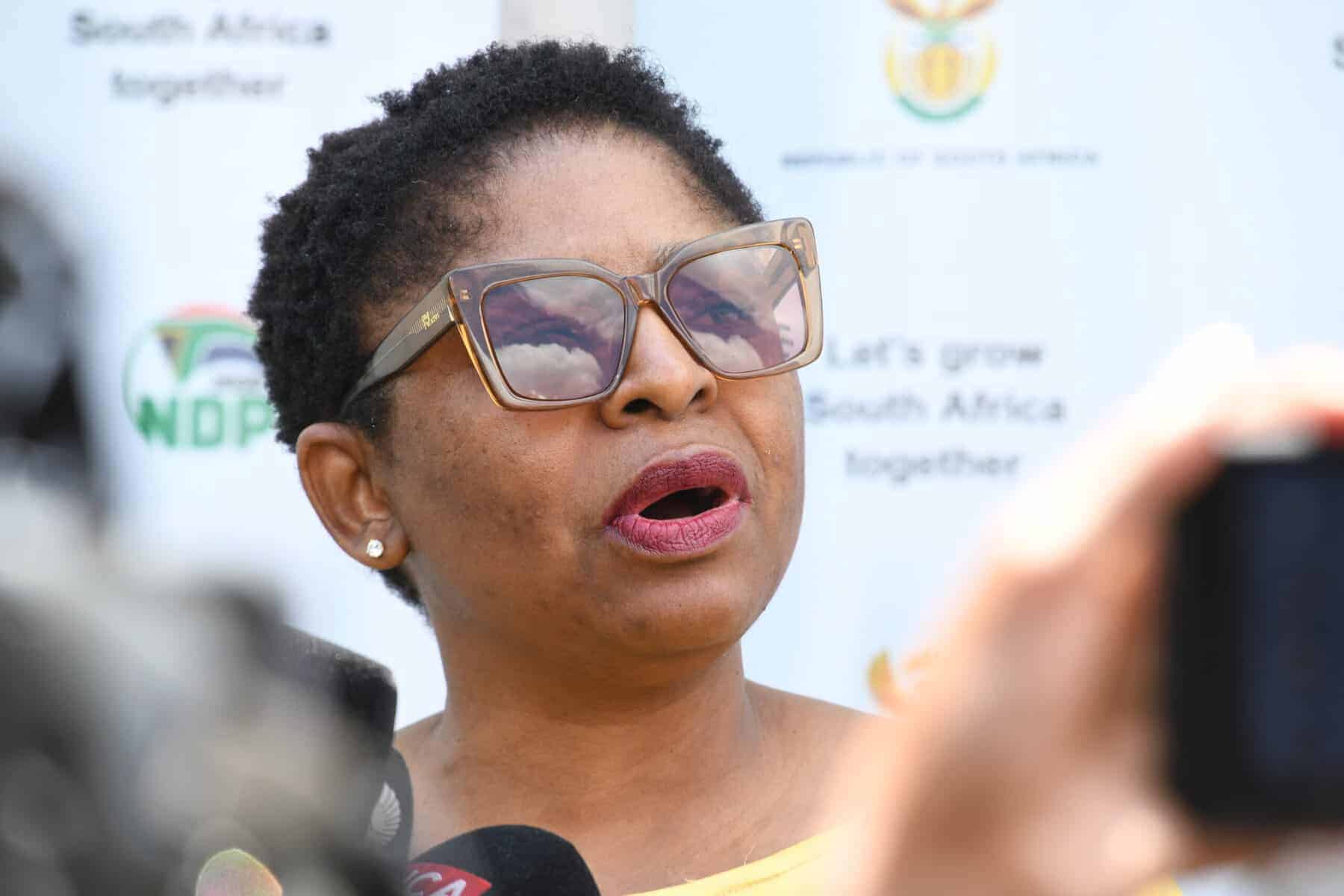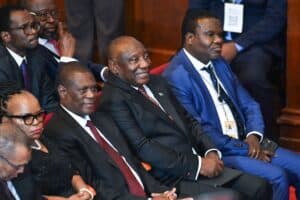Ntshavheni outlined the various perks available to deputy ministers.

The offices of two deputy ministers in the Presidency are costing South African taxpayers more than R14 million annually in staff salaries alone, parliament heard this week.
Minister in the Presidency Khumbudzo Ntshavheni revealed the full breakdown of expenses after ActionSA MP Athol Trollip asked about the total costs associated with each deputy minister position.
Staff and salary costs
Ntshavheni revealed that Deputy Minister IK Morolong’s office employs seven staff members, with a total annual salary bill of R7.4 million.
Morolong himself earns R2.2 million annually, which includes a R10 000 monthly allowance.
His staff includes Moleme M, who earns R1.2 million plus an additional monthly allowance of R7 330. Lukas MJ, a seconded official, receives R1.1 million with the same additional monthly allowance.
Other staff members include Masike DR at R896,436, Phakwe JM at R228 321, and two officials, Moje BS and Mzala DS, each earning R163 680 annually.
Furthermore, Deputy Minister NB Mhlauli’s office has a larger team of eight staff members. Ntshavheni said that her office’s total annual salary expenditure amounts to R7 million.
Mhlauli receives the same salary as her counterpart at R2.2 million annually, including the R10 000 monthly allowance. Her senior staff includes Titus MM, earning R1.2 million, and Mbele MP, at R1.2 million, both receiving additional monthly allowances of R7 330.
Three officials in her office earn R896 436 each: Shirimba M, Dayi SB, and another senior staff member.
Tolofane MA receives R228 321, while Maqaza TW and Manyathi BSN each earn R163 680 annually.
ALSO READ: Two more senior RTMC managers suspended because of whistleblower allegations
Travel and accommodation perks
Ntshavheni outlined the various perks available to deputy ministers according to the Guide for Members of the Executive dated 2 November 2022.
She explained that for international travel, the costs for official journeys abroad are covered by the relevant department.
This includes expenses for the member’s spouse or an adult family member accompanying them in an official capacity.
The guide stipulates that members should utilise the most cost-effective and convenient route when travelling.
Air travel costs must be the cheapest of the three quotations.
For flights under two hours, economy class is required. Business class travel is permitted only when journeys exceed two hours of flying time.
Regarding accommodation, the guide states that expenses “should be kept as low as possible by making use of hotels which suit the status of members, but which have reasonable tariffs.”
Ntshavheni said the standard is five-star graded hotels or their international equivalent.
ALSO READ: Psira cracks down on staff over Vusimuzi ‘Cat’ Matlala’s security company irregularities
Vehicle allocations
According to Ntshavheni, national members receive one vehicle for official use at each seat of office.
“The price for the purchase of official vehicles shall not exceed R800 000, inclusive of value-added tax, security upgrades and maintenance plans,” she said.
Ntshavheni said the minister of finance must adjust this cost limitation annually after consulting with the ministers responsible for police, transport and state security.
“Where the official vehicle is not available, members may make use of hired vehicles of a similar make and model as may be purchased by a department,” said Ntshavheni.
She added that no daily subsistence and travel allowance is paid to members, their spouses, adult family members or minor children for domestic travel.
NOW READ: Katiso ‘KT’ Molefe granted R400k bail after appeal






